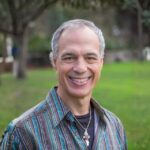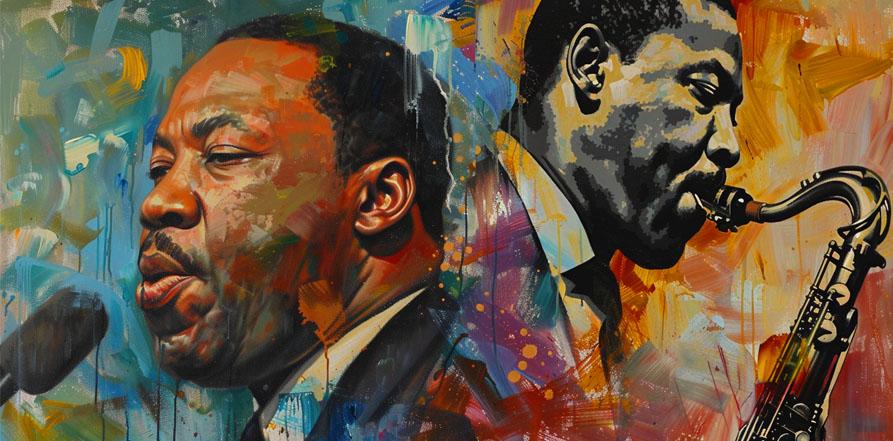“When one tries to rise above nature, one is liable to fall below it.”
– Sherlock Holmes
Exploring ‘Sherlock’s Corner’ of Mederi Medicine
From a wholistic perspective, cancer and other complex diseases require a deep investigation in several areas and involves the layering of various lenses, both macro and micro. Aptly, the Mederi Medicine approach has been greatly influenced by the problem-solving methods of the fictional detective, Sherlock Holmes. This is why I refer to the investigational component of Mederi Medicine as “Sherlock’s Corner”, to pay homage to Holmes’ logic.

Of equal relevance to the exploration, collection, and analysis of data in medicine is the understanding and application of hermeneutics. Hermeneutics is the science and method of interpretation, the process that helps us determine what is most relevant when considering the information within the context of a patient’s life story, which involves communication and relationship. Dr. Drew Leder explains that “Clinical medicine can best be understood not as a purified science, but as a hermeneutical enterprise: that is, as involved with the interpretation of (methodological) texts.” He suggests that the hermeneutics of medicine can be broken down into four text categories: “the “experiential text” as the patient’s experience of the illness; the “narrative text” as the history of the illness; the “physical text” as the objective examination of the patient’s body; the “instrumental text” as the construction by diagnostic technologies.” The information generated, when pooled together, can be useful in developing an understanding of the underlying disease, as well as a treatment plan. Leder further suggests that: “Certain flaws in modern medicine arise from its refusal of a hermeneutic self-understanding…in seeking to escape all interpretive subjectivity, medicine has threatened to expunge its primary subject–the living, experiencing patient.”[1]
Human to human dialogue is at the heart of the clinical encounter and is healing in and of itself.

In ill health, healing is often sought exclusively through modern medical science by eradication of disease via heroic means, but ill health may prompt us to ask deep and important questions about life’s meaning and our spirituality, which can lead us to a different kind of healing experience. We may ask ourselves, is there something more to life than mere survival, and if so, what is it? These kinds of conversations arise often when discussing a cancer diagnosis. Currently, the medical system is geared toward avoiding death — an avoidance that is often motivated by views of death as terrible and tragic, and even worse, failure. Although I do all I can to help people live longer and better, I don’t view death as a failure, but rather a mystery we all must come to embrace. There are healing components of human-to-human interaction that are vital to our wellbeing when faced with a terminal illness and these interactions are essential to our understanding of life, and our connection to each other and the universe. Mederi Medicine embraces this heart-centered relationship and dialogue and recognizes the importance of it in a patient’s experience.
“The truth that emerges from the expressed hermeneutical interrelationship enhances the practitioners’ sensitivity to patient matters, producing relationship outcomes that emerge from a consistent and effectively applied set of interpersonal principles that ultimately improves the human condition.”[2] Linda P. Finch, PhD, RN
The Mederi Medicine Lenses
In Mederi Medicine, practitioners equally assess three lenses: the HOST (the whole person), the MICROENVIRONMENT (cellular level), and the DISEASE (genomics, in cancer, the TUMOR). In mainstream standard-of-care medicine, as well as most so-called alternative medical systems, they do not analyze all of these lenses.
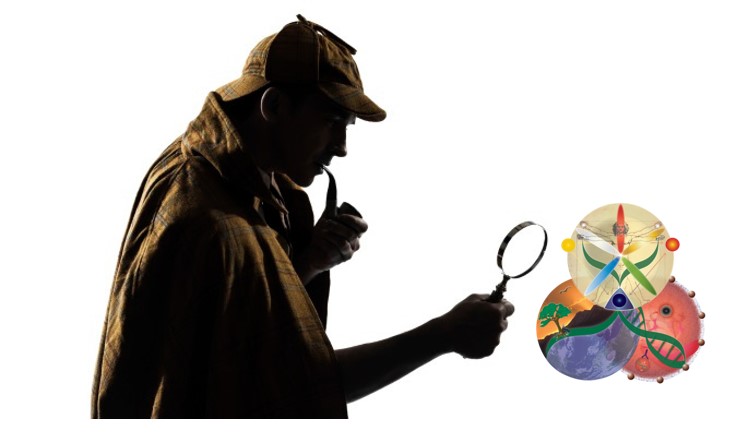
“We are living in an era of the most sophisticated technological advances, yet the treatment of cancer is paleolithic.” Azra Raza, MD
Mederi Medicine focuses first and foremost on health promotion. The word “health” comes from the (Indo-European) word “heal,” “whole”, and yes, “holy” as well. The word “Mederi” literally means to heal and to make
whole. So, health is the embodiment of wholeness in mind, body and spirit and involves the preservation of the spirit and breath of God. We apply several overlapping thematic elements, such as the wisdom of traditional medicine and the science of modern medicine combined with critical thinking and intuition to guide belief and action.
“Critical thinking” is best described as actively and skillfully conceptualizing, applying, analyzing, synthesizing, and/or evaluating information gathered from observation, experience, reflection, reasoning or communication to guide belief and action. It is the harmonization of Art/Creativity, Science/Rationale and Experiential Knowing.
“Intuition” implies a kind of material knowledge, which is gathered and formulated when intelligence unites itself with instinct, which is gifted and able to illuminate and guide the intellect. It is the convergence of the subjective and the objective knowledge blended into unity.
“The intuitive mind is a sacred gift and the rational mind is a faithful servant. We have created a society that honors the servant and has forgotten the gift.”
Albert Einstein
Practical Concepts Borrowed from Sherlock Holmes
1) One-pointedness A Buddhist term meaning a tranquil mental state – the essence of concentration. The function of one-pointedness is to conglomerate or unite associated states. A remarkable degree of mental concentration suggests a personal atmosphere which is the result of a long process of self-training. Holmes practices mindfulness, focusing on one problem or activity at a time. Mederi practitioners also aim to bring this skillful focused attention to each of their patients.

Within Mederi Medicine, numerous systems or differing approaches (ie; biologic or non-biologic) may have merit and must be evaluated in relation to the individual patient and condition. If the focus is on addressing the root cause of the symptom(s), practitioners have the opportunity to give a person the means to activate his or her own healing processes rather than treating with a drug that masks the symptoms. For instance, a person’s blood pressure may increase when trying to perform under stress. Teaching the patient how to meditate or breathe using the diaphragm helps that person break the stress response pattern and improve their uptake of oxygen. When faced with a stressful situation, this person is stronger and better able to deal with stress in a healthy manner. At the same time, breathing and meditation open the connection with the dimension of spirit.
2) Direct Perception The use of telepathy and intuition is eminent in Sherlock’s method of work. In the story “The Copper Beeches” the opening paragraph records the fact that in the dialogues between the detective and Watson, Holmes answers Watson by saying “thoughts, rather than his words.”
The art of healing requires a type of listening that is able to see past the spoken word to arrive at a balanced clinical perspective. Mederi practitioners weigh the clinical, emotional and personal factors of their patients to develop more thoughtful treatment plans.
3) Observation Sherlock Holmes skillfully forms solid theories based on observations. In the first pages of “A Scandal in Bohemia,” Sherlock explains to Watson the difference between looking and observing: “You see, but you do not observe. The distinction is clear. The difference between seeing and observing is that, by seeing you are merely capturing the sight of the object. Seeing an object doesn’t mean you have paid attention to it. By observing, your brain analyzes what it sees and reaches a conclusion.” [3]
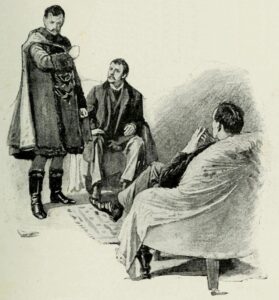
In “A Case of Identity,” Watson says to Holmes, after hearing his description of a certain topic: “You appeared to read a good deal upon [a certain lady] which was quite invisible to me…not invisible but unnoticed, you did not know where to look, and so you missed all that was important,” said Holmes.[4]
Human tendency is towards bias. It is our habit to start with a theory and then attend only to things that support our theory. Facts that don’t fit are ignored or discarded. Although we may ‘feel’ our evidence is right, our emotional thinking may also be deceiving us. By letting go of your bias, you can really begin to help people, even those inflicted with advanced cancer. I study every form of medicine I can, including every system and every drug, to best understand what will really help someone.
“It is a capital mistake to theorize before one has data. Insensibly one begins to twist facts to suit theories, instead of theories to suit facts.” Sherlock Holmes
In medicine we must observe and take note of everything, applying all of the various lenses. We must analyze each lens separately, and then analyze them all together as one, reflecting and pausing until the clouds dissipate and clarity ermerges.
4) Embracing the Mystery Holmes made a long trip to the mystic region of the Himalayas, where he presented himself as a Norwegian named Sigerson. In ‘The Empty House’ Sherlock Holmes confesses: “I travelled for two years in Tibet, therefore, and amused myself by visiting Lhassa and spending some days with the head Llama.” He faked his own death in order to hoodwink his enemies and went on a spiritual world tour.[5]
The Eastern mind is more poetic than the Western mind, with an inherent willingness to embrace the mysterious, accepting both the unknowing and knowing nature of reality.
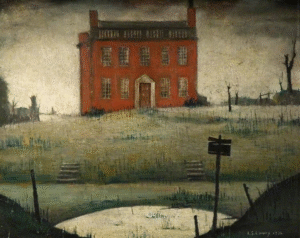
Mederi Medicine is a system of unity at every level, and it begins with the trilogy of Health – Spirit, Mind and Body. Spirituality is central and a lifelong developmental task, lasting until death. Regardless of our own interpretation or recognition of that pursuit, spirituality and religion continue to play an important role across cultures globally. Spirituality is seen as a vital element connected to seeking meaning, purpose, and transcendence in life.
5) Working for the Sake of the Art Medicine is first and foremost an art, then a science. Holmes has no special interest in money and acts as an idealist. Watson writes: “Like all great artists, [Holmes] lived for his art’s sake. I have seldom known him to claim any large reward for his inestimable services. So unworldly was he – or so capricious – that he frequently refused his help to the powerful and wealthy where the problem made no appeal to his sympathies, while he would devote weeks of most intense application to the affairs of some humble client whose case presented those strange and dramatic qualities which appealed to his imagination and challenged his ingenuity.”[6]
6) Seeking Meaning and Purpose The “Elixir of Immortality” must not be sought mainly on the physical plane or for a selfish purpose. Sherlock’s story “The Creeping Man” gives us an example of the disasters waiting for those who leave ethics aside, forgetting the need for absolute altruism in the search for an alchemically long life. By the end of the narrative, Holmes says to Watson:
“…When one tries to rise above Nature one is liable to fall below it. The highest type of man may revert to the animal if he leaves the straight road of destiny. (…) There is a danger there – a very real danger to humanity. Consider, Watson, that the material, the sensual, the worldly would all prolong their worthless lives. The spiritual would not avoid the call to something higher. It would be the survival of the least fit. What sort of cesspool may not our poor world become?”
I prefer to think beyond mere survival and allow my perception to transcend the mortal plane. Looking at life this way helps us in the search for meaning and we come to understand that the purpose of life isn’t necessarily to live as long as possible; we should do what we can, but life in and of itself is not the end goal. We must ask ourselves, does our life mean something and are we bringing love and goodness to the world?
A Key to Discovery in the Quest for Truth
Gathering knowledge by means of books, schools, and scholarly journals helps us to gain factual information, however, it is when we apply this knowledge along with what we feel, hear, and see that we have the ability to become open and enlightened. When we allow information to be transmitted and processed through our senses, we can experience a state of mesmerism. Mesmerism, named after its founder Franz Anton Mesmer (1734 – 1816), is a type of hypnosis, a natural energy, magnetic transference occurring between all living objects that can help us to uncover our inner clairvoyant capacity and use it to more clearly discover the truth and the answers we are seeking.
“The purification of the heart leads to inner peace, which allows us to listen and hear the illumination of truth, which lives in the ocean of perfect love.”
Donnie Yance

Joseph Buchanan (1814 – 1899) was a great American eclectic physician from whom I’ve gained insight and wisdom. He came to prominence in the 1840s when mesmerism and spiritualism were popularized. It was Joseph Buchanan who, in 1842, coined the term “psychometry” as meaning the “measuring of the soul.”[7]
Buchanan mapped out an entirely new distribution of the phrenological organs in 1843 and developed the theory of “nerve-aura” as a connecting link between will and consciousness.
Buchanan also performed experiments with medical students at the institute in which he discovered that some of the students reacted to an unmarked and unopened bottle of medicine exactly as they would have if they had ingested the medicine.[8]
I believe that both the natural and supernatural must be acknowledged and embraced. We have come to believe that the body works much like a machine, but unlike a machine, the body is not formally self-contained, nor are its boundaries exact. The body, mind and even spirit are networked and governed by a “life-force” that has an intelligence that often produces specific symptoms in order to heal. Yet, we have come to view many of these symptoms as part of the disease, rather than the life-force’s attempt to eradicate the disease, therefore treating them and often suppressing the innate healing process.
Healing is an art that I have refined through many years of practice, study, observation and creative problem solving. Sherlock Holmes has greatly influenced my process because of his skillful and effective approach to problem solving, which takes into account both the seen and unseen, the knowing and unknowing, and the scientific and metaphysical nature of reality.
[1] Leder D. Clinical interpretation: the hermeneutics of medicine. Theor Med. 1990;11(1):9-24. doi:10.1007/BF00489234
[2] Finch LP. Understanding patients’ lived experiences: the interrelationship of rhetoric and hermeneutics. Nurs Philos. 2004;5(3):251-257. doi:10.1111/j.1466-769X.2004.00181.x
[3] “The Complete Stories of Sherlock Holmes”, Sir Arthur Conan Doyle, Wordsworth Editions, UK 2007”, p. 431.
[4] The Complete Stories of Sherlock Holmes”, Sir Arthur Conan Doyle, Wordsworth Editions, UK 2007”, p. 476.
[5] “The Complete Stories of Sherlock Holmes”, Sir Arthur Conan Doyle, Wordsworth Editions, UK 2007”, p. 855, and “The Original Illustrated Sherlock Holmes”, p. 454.
[6] “The Complete Stories of Sherlock Holmes”, Sir Arthur Conan Doyle, Wordsworth Editions, UK 2007”, p. 946.
[7] Joseph Buchanan, UK’S LEADING PAST LIFE REGRESSIONIST, JULY 4, 2017, http://www.jane-osborne.com/blog/joseph-buchanan/, retrieved 10/7/2020.
[8] https://www.paralumun.com/psychometry.htm
https://en.wikipedia.org/wiki/Token-object_reading

